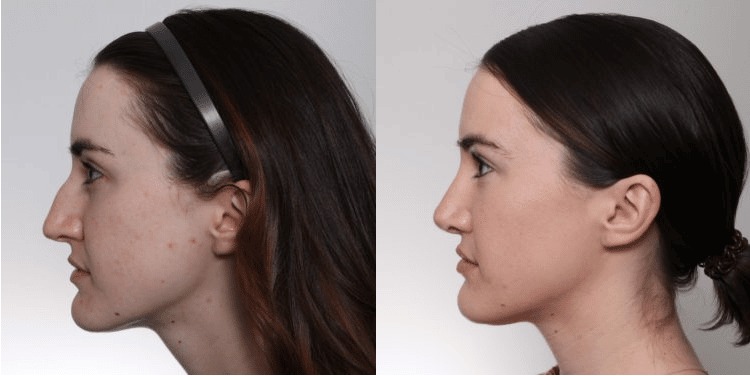Professional Mental Health Therapy Services Can Transform Your Life
Have you ever felt like life’s weight is just too heavy to carry alone? Like no matter how hard you try, something keeps pulling you down? You’re not alone—and that’s exactly why professional mental health therapy services exist. These services are not just for people in crisis; they’re for anyone who wants to live a more balanced, peaceful, and fulfilling life.
Think of therapy as having a personal guide for your mind—someone who helps you navigate through the storms, clear the fog, and find a brighter path ahead. In this article, we’ll explore how professional mental health therapy can truly transform your life—emotionally, mentally, and even physically.
Understanding Mental Health Therapy Services
Mental Health Therapy Services refer to professional support systems that help individuals manage emotional distress, psychological challenges, and behavioral issues. These services are designed to provide safe, confidential environments where you can talk openly about your feelings, fears, and struggles without judgment.
Therapists use proven methods—like cognitive-behavioral therapy (CBT), talk therapy, and mindfulness—to help people understand their emotions and develop healthy coping strategies.
The Growing Importance of Mental Health Awareness
Not long ago, talking about mental health was considered taboo. Thankfully, things are changing. Society is finally recognizing that mental health is just as important as physical health.
From workplace stress to social pressure, today’s fast-paced world often pushes people to the edge. Seeking Mental Health Therapy Services is no longer a sign of weakness—it’s a sign of strength, self-awareness, and the desire to live better.
Why Professional Help Matters
It’s tempting to think we can handle everything ourselves. But when emotional pain becomes overwhelming, professional help can make all the difference.
Therapists are trained experts who can identify deep-rooted issues, patterns, and triggers that may not be visible to you. They don’t just offer advice—they guide you to understand yourself better, empowering you to make lasting changes.
Types of Mental Health Therapy Services
There’s no one-size-fits-all when it comes to therapy. Depending on your needs, you can choose from different types of services:
- Individual Therapy: One-on-one sessions focused on personal growth and emotional healing.
- Couples Therapy: Helps partners improve communication and strengthen their relationship.
- Family Therapy: Addresses conflicts and promotes harmony within families.
- Group Therapy: Provides a supportive environment to share experiences and learn from others.
- Online Therapy: Accessible, flexible sessions through video calls or chat.
Each of these services offers unique benefits tailored to different situations.
How Therapy Works: The Science Behind Healing
Therapy is not just about talking—it’s rooted in neuroscience and psychology. When you open up about your thoughts and emotions, you activate specific areas of the brain linked to self-awareness and regulation.
Over time, therapy helps rewire neural pathways, allowing you to think and react differently. It’s like updating your mind’s operating system—making it run smoother, faster, and more efficiently.
Breaking the Stigma Around Therapy
Many people still hesitate to seek help because of fear or shame. But the truth is, mental health therapy is for everyone, not just for those diagnosed with a disorder.
Just as you’d see a doctor for a physical injury, seeing a therapist for emotional pain is perfectly normal—and incredibly beneficial.
Signs You Might Benefit from Therapy
Wondering if therapy is right for you? Here are some signs that it might be time to reach out:
- You feel constantly anxious, sad, or overwhelmed.
- You’re having trouble sleeping or concentrating.
- You’ve lost interest in things you used to enjoy.
- You’re struggling in relationships.
- You feel stuck in negative patterns or thoughts.
If any of these sound familiar, Mental Health Therapy Services could be a life-changing step.
How Therapy Can Improve Emotional Well-being
Therapy helps you become more aware of your emotions, manage stress, and respond calmly to life’s challenges. Over time, you’ll notice increased confidence, peace of mind, and self-acceptance.
It’s not about changing who you are—it’s about helping you become the best version of yourself.
The Role of Therapists: More Than Just Good Listeners
A therapist isn’t just someone who listens. They’re trained to analyze, empathize, and guide you through complex emotional landscapes.
They help you identify thought patterns, challenge negative beliefs, and develop healthy coping mechanisms—all in a safe, supportive space.
Building Healthy Relationships Through Therapy
Relationships can be messy, but therapy can help clean up the clutter. It teaches communication, empathy, and conflict-resolution skills—key ingredients for any healthy connection.
When you understand yourself better, you also learn to understand others more deeply.
Therapy and Stress Management
Stress is inevitable, but how you handle it makes all the difference. Therapists teach techniques like mindfulness, deep breathing, and reframing thoughts to manage stress effectively.
Imagine learning how to calm the storm within you instead of letting it control your day—that’s the power of therapy.
Mental Health and Physical Health: The Hidden Connection
Your mind and body are deeply connected. Chronic stress and anxiety can lead to fatigue, headaches, and even heart problems.
By improving your mental health, you’re also improving your physical health. Think of therapy as a tune-up for both your mind and body.
Online Therapy: The Modern Way to Heal
In our digital age, online Mental Health Therapy Services have become a game-changer. Whether you’re too busy to commute or prefer privacy, online therapy offers flexibility and accessibility without compromising quality.
You can connect with licensed therapists from anywhere—your home, your office, or even your favorite coffee shop.
What to Expect in Your First Therapy Session
Your first session might feel nerve-wracking, but don’t worry—it’s normal. The therapist will ask about your background, challenges, and goals.
It’s a judgment-free conversation where you set the pace. Over time, you’ll build trust and comfort, making each session more productive and healing.
How to Choose the Right Therapist for You
Choosing the right therapist is like finding the right pair of shoes—it has to fit perfectly.
Look for:
- Credentials and experience in your specific concern (e.g., anxiety, trauma, relationships).
- Comfort level —you should feel safe and heard.
- Therapeutic approach that aligns with your goals (CBT, holistic, psychodynamic, etc.).
A good therapist makes you feel understood, supported, and empowered.
The Long-Term Benefits of Professional Therapy
Therapy is an investment in yourself. Over time, you’ll notice:
- Greater self-awareness and resilience.
- Improved relationships and communication skills.
- Better emotional regulation.
- Enhanced problem-solving and decision-making.
- Increased life satisfaction and inner peace.
These lasting benefits make therapy one of the best decisions you can make for your personal growth.
Conclusion
Life is full of challenges, but you don’t have to face them alone. Professional Mental Health Therapy Services provide the tools, guidance, and support you need to thrive—not just survive.
By choosing therapy, you’re choosing to invest in your happiness, your peace, and your future. Remember, healing doesn’t mean the damage never existed—it means it no longer controls your life.
FAQs
1. What are Mental Health Therapy Services?
They are professional counseling and psychological support services that help individuals manage emotional, behavioral, and mental challenges effectively.
2. How do I know if I need therapy?
If you’re feeling overwhelmed, anxious, or emotionally drained, therapy can help you understand and manage your emotions better.
3. Are online therapy sessions as effective as in-person ones?
Yes, studies show online therapy can be just as effective, especially when conducted by certified professionals using structured methods.
4. How long does it take to see results from therapy?
It varies—some people notice improvements after a few sessions, while others need longer to unpack deeper issues.
5. Can therapy really change my life?
Absolutely! Therapy helps you understand yourself, build resilience, and develop healthier relationships—leading to lasting transformation.













